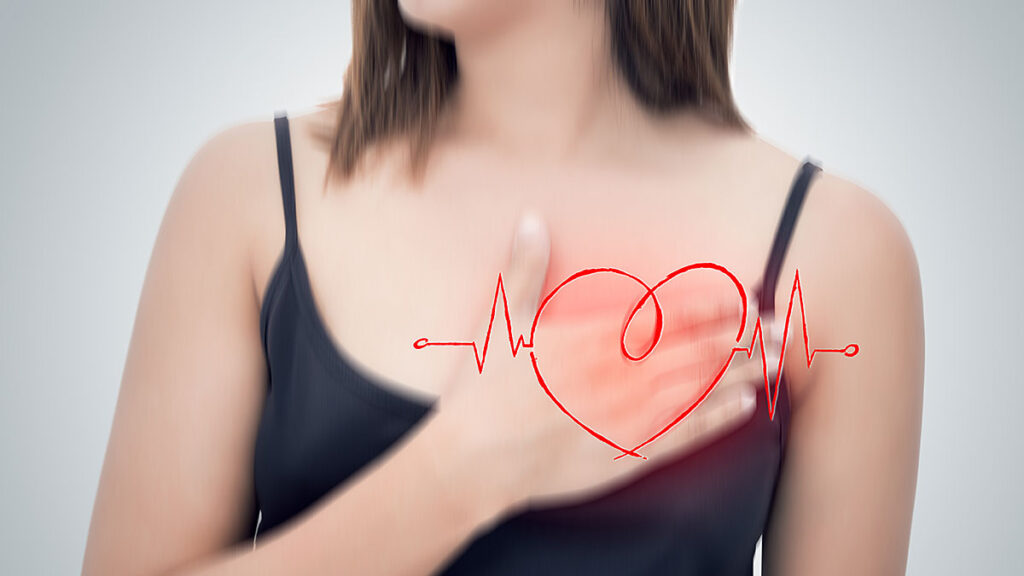Discover how heart rhythm disorders uniquely affect women and learn about their symptoms, risks, and treatment options.
Understanding Heart Rhythm Disorders in Women
Heart rhythm disorders, or arrhythmias, occur when the electrical signals that control the heart’s rhythm become irregular. While both men and women can develop arrhythmias, their symptoms, risk factors, and even responses to treatment can differ significantly. For women, these differences are often linked to hormonal changes, age, and the unique physiology of the female heart.
Common arrhythmias include atrial fibrillation (AFib), which causes rapid and irregular heartbeats, and supraventricular tachycardia (SVT), characterized by sudden episodes of abnormally fast heartbeats. Women are more likely to experience SVT and report symptoms such as palpitations or dizziness, making early recognition and diagnosis essential.
Symptoms of Heart Rhythm Disorders in Women
One of the biggest challenges in diagnosing arrhythmias in women is the variability of symptoms. Women may experience subtle or atypical signs that can be mistaken for anxiety or stress. Common symptoms include:
- Heart palpitations or fluttering sensations
- Dizziness or lightheadedness
- Shortness of breath, especially during physical activity
- Fatigue or general weakness
- Chest discomfort or pain
- Fainting episodes (syncope)
Hormonal fluctuations, such as those during pregnancy, menopause, or the menstrual cycle, can exacerbate these symptoms. Because of this, women may be underdiagnosed or misdiagnosed, delaying appropriate treatment.
Unique Risk Factors for Women
Several factors increase the likelihood of arrhythmias in women, including:
- Hormonal Changes: Shifts in estrogen levels during menopause or pregnancy can influence the heart’s electrical activity.
- Prolonged QT Interval: Women are more likely to have a longer QT interval, a measure of electrical recovery in the heart. This can increase the risk of life-threatening arrhythmias like torsades de pointes.
- Autoimmune Conditions: Disorders such as lupus or rheumatoid arthritis, which are more common in women, can contribute to arrhythmias through inflammation and other systemic effects.
- Psychological Stress: High levels of stress and anxiety, which disproportionately affect women, can act as triggers for arrhythmias like AFib or SVT.
- Medications: Women metabolize some drugs differently than men, making them more susceptible to side effects that can affect heart rhythms, such as those caused by certain antibiotics or antidepressants.
Treatment Options for Women with Arrhythmias
Effective management of arrhythmias in women requires a tailored approach that considers individual risk factors, symptoms, and hormonal influences. Treatment options include:
- Lifestyle Modifications: Reducing caffeine and alcohol intake, managing stress through mindfulness practices, and maintaining a heart-healthy diet can help control symptoms.
- Medications: Antiarrhythmic drugs may be prescribed to regulate heart rhythm, but close monitoring is necessary to minimize side effects, especially in women with prolonged QT intervals.
- Catheter Ablation: This minimally invasive procedure targets areas of abnormal electrical activity in the heart. It has proven highly effective for conditions like SVT and AFib.
- Implantable Devices: Pacemakers or implantable cardioverter-defibrillators (ICDs) may be recommended for women at risk of life-threatening arrhythmias.
- Hormonal Therapy: For women whose arrhythmias are linked to hormonal changes, hormone replacement therapy (HRT) or adjustments to existing treatments may help stabilize symptoms.
The Importance of Gender-Specific Care
Recognizing the unique needs of women with arrhythmias is crucial for improving outcomes. Gender-specific research has shown that women may respond differently to certain treatments, and their risk of complications may also vary. For example, women undergoing catheter ablation for AFib often report higher success rates compared to men but may experience more procedural complications.
Additionally, healthcare providers should be aware of the psychosocial impact of arrhythmias on women. Anxiety and depression are common among female patients with heart rhythm disorders, emphasizing the need for comprehensive care that addresses both physical and emotional well-being.
When to Seek Help
If you are experiencing symptoms such as palpitations, dizziness, or unexplained fatigue, it is important to consult a healthcare provider promptly. Early diagnosis and treatment can prevent complications like stroke or heart failure. Dr. Adam Budzikowski specializes in the diagnosis and management of arrhythmias, offering personalized care tailored to women’s unique needs. Schedule a consultation today to explore your treatment options and regain control of your heart health.
A Riley Publication
Medically Reviewed By: Adam Budzikowski, MD, PhD
